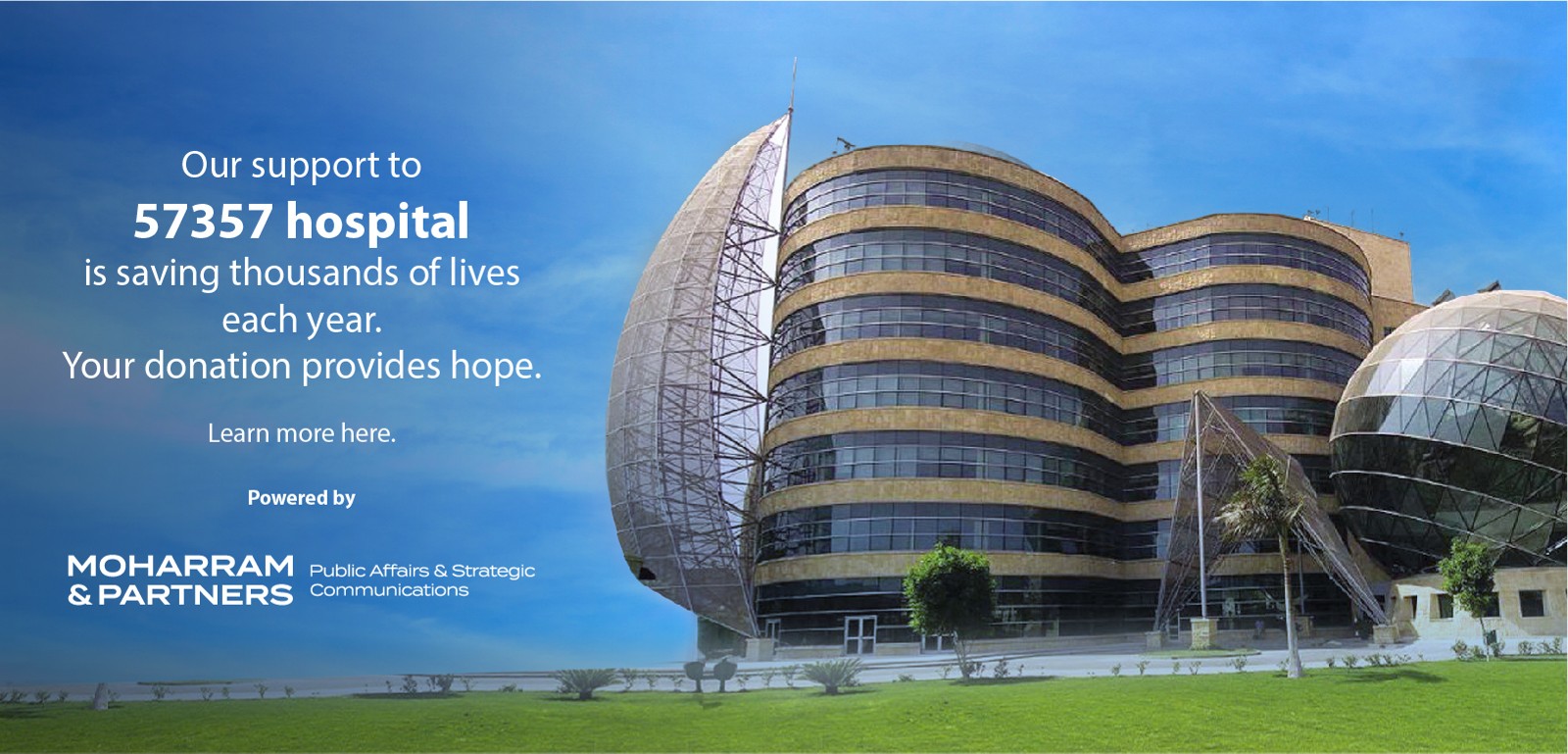- All the details on the give and take of our USD 3 bn IMF loan package. (Economy)
- Goldman Sachs thinks the EGP has overshot — and that it still needs to fall a bit more before it hits a market-clearing rate. (What We’re Tracking Today)
- Inflation hit a new five-year high of 21.3% in December. (Economy)
- World Bank downgrades growth forecasts for 2023 in Egypt, EMs, and almost everywhere else. (What We’re Tracking Today)
- Does Abu Dhabi Ports have its eye on Suez Port? (Infrastructure)
- Apex International Energy snags six Western Desert concessions from Eni. (Energy)
- BTECH kicks off EGP 5 bn securitization program with EGP 1 bn issuance. (Debt)
- Domestic workers would need to get licensed under a draft bill to bring them into the formal economy. (Legislation Watch)
- Markets underestimate inflation — and the Fed’s need to contain it — at their peril. (Planet Finance)
- New gov’t regs could give contractors a much-needed liquidity boost. (Hardhat)

Wednesday, 11 January 2023
AM — Goldman Sachs thinks the EGP will weaken a bit more (even though it has already overshot, by one measure)
TL;DR
WHAT WE’RE TRACKING TODAY

Good morning, friends, and welcome to the first “big” news day of 2023.
THE BIG STORY HERE AT HOME remains the EGP, but we also have news of CIB getting in on the high-yield CD frenzy, the Finance Ministry’s five-year tax policy document, and the World Bank’s move to (slightly) downgrade Egypt’s growth forecast.
EGP WATCH- The EGP fell around 0.25% against the greenback yesterday to settle at 27.70, according to the central bank rate, after dropping almost 2% on Monday. The currency is down more than 11% since its level immediately before the central bank allowed it to slip further against the USD on 4 January, and has fallen around 75% from its 15.78 / USD level immediately before the initial devaluation last March.
The question we all need to be asking ourselves: Are we there yet? According to Goldman Sachs, not quite. “We believe that the adjustment is as yet incomplete and has significantly further to run before the supply-demand equilibrium in the FX market is restored,” Goldman’s Farouk Soussa wrote in a note to clients yesterday. While Soussa says we have made “progress in recent weeks,” the absence of big inflows from the GCC and the Central Bank Egypt’s limited ability to provide FX liquidity to the market “implies further EGP weakness and / or increases in local rates in the coming days.”
So, where will we settle? “How much further the EGP will depreciate is unclear to us,” Soussa writes, reiterating that the EGP probably needs to hit the depreciation implied by the parallel market. While we’re at EGP 27.70 to the greenback right now, “the ADR-implied parallel rate is closer to 35 EGP / USD (the gold price-implied rate is around 33 EGP / USD,” he says.
Still, we shouldn’t lose hope: The EGP has already overshot its far value “as implied by deviations of the real effective exchange rate from its long-run average,” Soussa writes. As happened back in 2016, the overshoot is “likely to prove temporary,” he suggests, as it triggers both foreign direct and portfolio investment, bringing the EGP closer to its fair value “in the medium- to long-term.”
MEANWHILE- CIB is getting in on the CDs frenzy, launching 18-month, 22.5%-yield certificates of deposit (CDs). The minimum buy-in is EGP 100k, according to its website. Buyers can opt for a one-time payment of 22.5% when their CDs mature, or can go for monthly interest payouts at a reduced 20.0% annualized rate. The CDs from the nation’s largest private-sector lender come on the heels of the one-year, 25% CDs released by state-owned Banque Misr and National Bank of Egypt last week, which as of yesterday morning had attracted at least EGP 155 bn.
THE TAXMAN ALWAYS RINGS TWICE- What to expect from the government’s tax policy document: Finance Minister Mohamed Maait gave us an early look at the ministry’s five-year tax policy document yesterday ahead of its unveiling in a few weeks by President Abdel Fattah El Sisi. The document could introduce changes to the capital gains and income tax but the 22.5% corporate income tax rate will remain unchanged, Maait said. Tax amendments are on the Madbouly government’s agenda as part of its commitments to the IMF under its USD 3 bn loan agreement. We have more on this in the Economy section below.
We’re getting what business longs for: Predictability. After the document’s ratification, the tax system will remain untouched for five years’ time, Maait said. The state has been working to drum up more investments after 2022 saw almost USD 20 bn in outflows as rising interest rates around the world and soaring inflation triggered a global risk-off and sent Egypt’s real interest rate into negative territory.
ALSO- More details on the budget cutbacks to come: The Finance Ministry is currently working with the Planning Ministry on instructions for all state agencies on where they need to trim the fat. The cabinet announced budget cutbacks for FY2022-2023 earlier this week in response to rising inflation (more on that below) and the ongoing FX crunch.
GROWTH FORECAST- The World Bank has revised down its growth forecast for Egypt this fiscal year to 4.5% from a previous forecast of 4.8%, according to its latest Global Economic Prospects report (pdf). The multilateral lender said high inflation, weakening external demand in our manufacturing and tourism sectors, fiscal and monetary tightening, our “large” current account deficit, and potential trade disruption from “rules governing sourcing of foreign currency” would all work to bring growth down from the estimated 6.6% it registered in FY 2021-2022.
The whole world is hurting: The bank slashed its global growth forecast for 2023 by almost half to 1.7%, down from its June prediction of 3.0%, on soaring inflation, aggressive policy tightening cycles and other knock-on effects of the war in Ukraine. The bank revised down growth forecasts for 95% of advanced economies and nearly 70% of EMs, it said in a statement accompanying the report. For EMs, “weakness in growth and business investment will compound the already-devastating reversals in education, health, poverty, and infrastructure and the increasing demands from climate change,” said World Bank President David Malpass.
THE BIG STORY ABROAD in the international business press is the kickoff of Goldman Sachs’ biggest cost-cutting drive since the global financial crisis. The cuts, which could see Goldman slash some 3k jobs, is getting top billing at the Financial Times, while the WSJ hones in on the recent rally in European stocks. Crypto exchange Coinbase, meanwhile, has laid off another 20% of its workforce, the New York Times notes.
|
I REALLY DON’T CARE, DO U?
- The Golden Globes entertainment awards were wrapping up as we approached our dispatch deadline this morning.
- The World Economic Forum takes place next week in Davos, running 16-20 January.
FROM THE REGION- Has Libya called off its Med energy exploration agreement with Turkey? A Libyan court on Monday suspended the controversial energy exploration pact the country made with Turkey last year, Reuters reports citing an unnamed judiciary source.
Why we care: Egypt and Greece had rejected the Libyan-Turkish agreement, arguing that Libya’s Tripoli-based government did not have the authority to conclude any international agreements or MoUs. While details of the agreement remain obscure, Reuters reported last year that it could include exploration rights in the so-called “exclusive economic zone” drawn up by the two countries in 2020, which Egypt and Greece disputed with their own rival agreement demarcating the maritime border in the oil and gas-rich East Med.
CIRCLE YOUR CALENDAR-
The national dialogue will kick off on Saturday, 14 January.
Davos 2023: The usual suspects will descend on the Swiss town for the annual meetings of the World Economic Forum on 16-20 January.
Egyptian expats have until 14 March to import cars for cheap: The expat car import scheme will conclude on Tuesday, 14 March with no wiggle room for extensions or exemptions, Finance Minister Mohamed Maait said during a presser yesterday, according to a Finance Ministry statement. The deadline was initially set for 15 February but was pushed after the ministry introduced amendments to make it easier for Egyptians abroad to take advantage of the scheme. Some 34k accounts have been created on the system for the scheme, though it’s not clear how many of those have submitted applications so far (the number of applications stood at just 4k toward the end of December.)
Check out our full calendar on the web for a comprehensive listing of upcoming news events, national holidays and news triggers.
ENTERPRISE IS LOOKING FOR SMART, TALENTED PEOPLE of all backgrounds to help us build some very cool new things. Enterprise — the essential daily read on what’s happening in business, finance, economics and policy in Egypt and the wider region — is looking for writers, reporters, and editors to help us build new publications. We're looking for gifted story-tellers from all walks of life and across all professions, as long as they show a keen interest in learning to write about the stories, topics, businesses, and ideas moving markets. Egyptian and foreign nationals alike are welcome to apply.
NEVER WORKED IN A NEWSROOM BEFORE? We have the Enterprise Business Writing Development Program. The four-month program will see full-time, paid participants take part in workshops and lectures from veteran business journalists, while also working on and filing stories that will run in our publications. Those who successfully complete the program will then be offered full-time positions on staff.
During the program you will learn:
- The key news stories and trends shaping business and the economy in Egypt and the region, across various sectors;
- Business and finance for non-finance people: Whether it's industry jargon, key concepts, or simply how to read a an income statement;
- How to construct an Enterprise story: From idea formulation down to the structure, style, and tone of writing;
- The ins and outs of a newsroom, including how to develop sources that will give you the key insights needed to tell a complete story;
- How to communicate these stories with the confidence and language of an insider.
Apply directly to jobs@enterprisemea.com and mention “writing development program” in your subject line.

*** It’s Hardhat day — your weekly briefing of all things infrastructure in Egypt: Enterprise’s industry vertical focuses each Wednesday on infrastructure, covering everything from energy, water, transportation, and urban development, as well as social infrastructure such as health and education.
In today’s issue: Will new rules for classifying contracting companies help stem the industry's losses?
Somabay brings out the best in majestic natural elements where raw beauty and endless activities reign supreme. Immerse yourself into a picturesque getaway all year long. This is simply Somabay. For more information, call 16390 or visit www.somabay.com.
ECONOMY
IMF breaks down the details on our USD 3 bn loan

IMF releases breakdown, timing + conditions of our USD 3 bn facility: The IMFyesterday published a package of documents (pdf) on our USD 3 bn loan agreement, shedding light on the disbursal timeline as well as separate external financing it expects us to receive on the back of the program — and the long laundry list of policy changes that we’ve agreed to in return for the helping hand.
REFRESHER- The staff-level agreement reached in October was announced in tandem with a 200-bps interest rate hike and a large devaluation of the EGP. The IMF then approved the package and released the first USD 347 mn tranche in December.
We have some clarity on funding: We’re getting over USD 5 bn before the end of the year from an array of lenders. Egypt is receiving USD 700 mn from the IMF over the course of 2023, with two USD 347 mn tranches scheduled for March and September. The government will receive USD 2 bn from selling down state-owned assets. The World Bank, the China Development Bank, the Asian Infrastructure Investment Bank, the Arab Monetary Fund, and the African Development Bank will stump up the rest.
What about the rest of the loan? We will see the remaining USD 2 bn from the IMF across six USD 347 tranches spanning until September 2026, with two disbursements scheduled for March and September each year.
But it’s still not clear how Egypt’s financing gap will be funded over the course of the program: Egypt faces a USD 17 bn financing gap over the next four years, with the USD 3 bn IMF program accounting for less than 20% of this. “The remainder [is] expected to be filled by other multilateral and bilateral creditors, including the World Bank, the Asian Infrastructure Investment Bank, as well as by the proceeds from sales of state-owned assets, including divestment to Egypt’s regional partners and their sovereign wealth funds,” according to the document.
GCC funds are staying put until 2026: In efforts to ensure that our funding gap doesn’t expand any further, the government has secured assurances that the USD 28 bn in GCC deposits at the CBE will not mature before the end of the loan program in September 2026. The money will not be used to purchase equities or debt.
Here’s what Egypt signed up to in return for IMF assistance: A letter of intent sent by Egyptian authorities to the Fund at the end of November commits the government to carrying out a number of policies designed to improve the country’s foreign exchange position, boost the role of the private sector, and lower national debt.
#1- The CBE will remain committed to a “durably flexible” exchange rate to help cushion the impact of external shocks, support competitiveness, and “balance external dynamics.” The central bank has devalued the currency three times against the greenback in the past year and has lifted import curbs as it moves to implement a fully flexible exchange rate.
#2- Public investment projects will take a backseat as part of the state’s efforts to ensure external sustainability and economic stability, the IMF says without providing many details. This week the government announced budget cutbacks for the current fiscal year that will see some national projects that require FX shelved.
#3- More private sector involvement as the state works to reduce its footprint in the economy and “level the playing field between public and private institutions.” The state is carrying out a privatization plan under which the proceeds of some stake sales in state-owned assets go towards increasing international reserves and closing the financing gap.
#4- End subsidized lending programs: The CBE is working to phase out its funding for subsidized loans and pass the responsibility for those loan programs that will continue to government ministries.
#5- All state-owned enterprises —- public sector companies, public business sector companies, military-owned companies, and everything in between — are to publish annual tax expenditure reports.
#6- New fiscal targets: A primary surplus of 1.7% for FY 2022-2023, slightly higher than the 1.6% the government was initially targeting. It is also aiming to improve the current account deficit to 2% over the medium term.
#7- Tax reform: The government has committed to adjusting excise duties and simplifying value-added tax, though the document doesn’t elaborate on how the government might change the tax system. Finance Minister Mohamed Maait yesterday said the government will publish a tax policy document in the coming weeks, outlining its plans for tax reform.
#8- Fuel prices: The government has committed to changing local fuel prices in line with movements in the global markets, noting that prices have been kept lower relative to the indexation mechanism. “This will help solidify the progress that has been made on fuel subsidy reform in recent years, protect valuable budgetary resources, and help our decarbonization efforts.”
ECONOMY
Inflation hits new high on weaker EGP

Inflation rose to a fresh five-year high in December as the impact of successive currency devaluations continued to feed through to the economy. Figures released yesterday by state statistics agency Capmas showed annual urban inflation jumped to 21.3% in December, up from 18.7% the month before, driven by surging food costs. This is the highest rate since December 2017, and is up from just 5.9% in December 2021.
This was above analysts’ forecasts: The median forecast in a poll of economists conducted by Reuters had inflation rising to 20.5% during the month.
Food prices continue to soar: The rise in the headline rate was fuelled by a 37.2% y-o-y rise in food and beverage costs, which make up the largest component of the basket of goods used to measure inflation.
Core inflation hit another five-year high as price pressures intensified across the broader economy: Core inflation, which strips out volatile items such as food and fuel, rose to 24.4% y-o-y in December from 21.5% a month earlier, according to Central Bank of Egypt figures (pdf) — its highest since November 2017. This is the 16th month in a row that core inflation has accelerated. The hospitality sector was hit particularly hard, with prices rising 33.2% y-o-y. Clothing and footwear prices were up 16.5% y-o-y while healthcare costs rose 12.3%.
Some respite for monthly inflation: Monthly inflation dipped to 2.1% in December, down from 2.3% in November.
The upsurge was driven by a trifecta of headwinds: Successive currency devaluations, the fallout from the war in Ukraine, and import restrictions all played a part. The Central Bank of Egypt has allowed the EGP to devalue three times in less than a year as part of its agreement with the IMF to move towards a permanently flexible exchange rate. The EGP has fallen 75.6% against the greenback since the first devaluation in March, and is down 11.7% since last week when the central bank allowed the currency to depreciate further.
A long way from target: The central bank is currently targeting an inflation rate of 7% (± 2%) by 4Q 2024.
Analysts expect prices to continue to accelerate in the months ahead: In a note yesterday, CI Capital forecast inflation to peak at 22-24% during 1Q 2023 due to the ongoing depreciation of the EGP, while BNP Paribas is expecting it to rise to 25% by March. Jason Tuvey, an analyst at London-based Capital Economics, shares a similar outlook, telling the Associated Press that consumer price growth will continue to rise in the coming months.
A fresh round of interest rate hikes to follow? Rising inflation may push the CBE to further raise interest rates when it next meets on 2 February. The central bank hiked rates by 800 bps last year, including a huge 300-bps increase at its last meeting in December.
The story got ink from the international press: Reuters, Bloomberg, and the Associated Press all covered the December inflation data.
INFRASTRUCTURE
ADQ’s Abu Dhabi Ports looks to invest in Suez Port
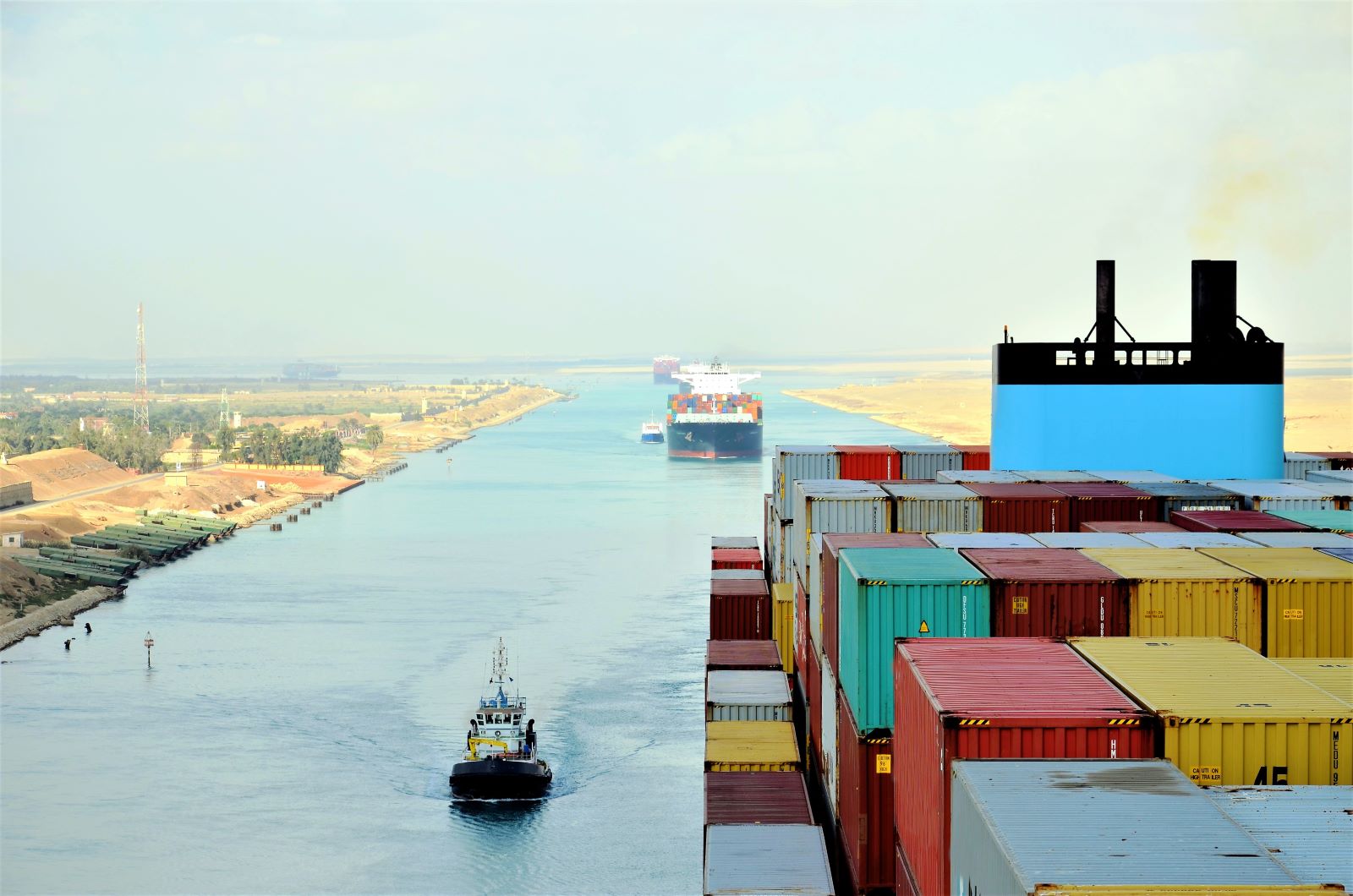
ADQ-owned Abu Dhabi Ports Company is in talks with the Madbouly government to take over the development and management of the Suez Port, Bloomberg Asharq reports citing anonymous sources it claims are familiar with the conversations. ADP would run the port under a usufruct contract.
Third port’s a charm: ADP has been pushing aggressively into Egypt’s maritime sector. The company was selected in March to build and run a terminal at the port of Sokhna and is bidding to build a new terminal at Safaga port. ADP also acquired a 70% stake in local shipping and logistics firm International Associated Cargo Carrier in September last year for USD 140 mn.
ADP isn’t the only GCC-based company that has its sights set on our ports: Dubai’s DP World signed an agreement to build a USD 80 mn logistics zone at Ain Sokhna Port.
Meanwhile, Qatar’s sovereign wealth fund is interested in Safaga port, with the Qatar Investment Authority reportedly in talks with the Madbouly government late last year to develop and manage the port under a 25-year contract.
The government has been keen to emphasize that the nation’s ports are not up for sale: Amid a backlash from some opposition MPs over the government’s privatization plans, Transport Minister Kamel El Wazir has reiterated that the government is not selling ports, but rather entering partnerships with both local and foreign private-sector players to manage and operate them.
ENERGY
Apex acquires shares in six oil concessions from Eni

Egypt-focused oil and gas firm Apex International Energy will acquire shares in six producing oil concessions in the Western Desert from Eni, the company said in a statement yesterday. The assets will raise Apex’s production by 65% to 11.5k barrels per day, which the company says will make it the eighth-largest oil producer in Egypt. Apex did not disclose how much it paid for the assets. The company declined to speak about the financial terms of the concessions when we asked yesterday.
The breakdown: Apex will acquire 100% of West Razzak, 75% of Ras Qattara, 45% of West Abu Gharadig, and 50% of East Kanayis, and become the operator of the concessions alongside the Egyptian General Petroleum Company. It will also get 25% of the East Obaiyed and South West Meleiha concessions, where Eni will remain the operator. The company aims to start natural gas production in the second quarter of 2023 in the East Obaiyed concession.
Apex + Eni also landed an exploration block: EGPC has awarded Apex and Eni each a 50% interest in the East Siwa exploration concession in the Western Desert, with Apex as the operator. The concession is awaiting parliament’s approval in the second quarter of 2023.
Where the money’s coming from: The acquisitions are being part-financed through a loan arranged by Mauritius Commercial Bank.
Apex has discovered four fields in South East of Meleiha since January 2021 and the company is collaborating with Eni to carry out additional exploratory drilling this year.
ICYMI- We recently spoke with Apex CEO and President Tom Maher as part of our CEO poll on exports and FDI.
EXXONMOBIL ACQUIRES TWO OFFSHORE BLOCKS-
US oil giant ExxonMobil has acquired two offshore blocks in the Nile Delta, the company said in a press release (pdf) yesterday. ExxonMobil Egypt will operate both blocks and hold 100% interest. The awards are pending government approval, with operations scheduled to begin in 2023.
DEBT WATCH
BTECH kicks off EGP 5 bn securitization program

BTECH has closed an EGP 1.038 bn securitized bond issuance, according to a joint statement (pdf) from BTECH and CIB, which was the exclusive financial advisor on the transaction, as well as issuance manager, general arranger, promoter, and co-underwriter.
The details: The three-tranche issuance is the first in a short-term EGP 5 bn program that the company is rolling out over two years. The three tranches were rated P1 by Middle East Rating & Investors Services, the statement said.
Where the money’s going: The proceeds will be put towards BTECH’s growth plans, the statement said, without elaborating.
Also working on the transaction: CIB and the National Bank of Egypt served as the transaction custodians, Zulficar & Partners Law Firm was counsel and KPMG was the auditor.
The most recent undertaking after a bumper year for securitization: The securitization market saw issuances worth a combined EGP 51.2 bn in 2022, more than three times the EGP 15.8 bn sold the year prior, according to data tracked by Enterprise.
Under new ownership: Saudi Arabia sovereign wealth fund PIF last year acquired a 34% stake in the company for an undisclosed amount. We sat down with BTECH CEO Mahmoud Khattab at the time to talk about how far BTECH has come and the strategy moving forward.
LEGISLATION WATCH
Domestic workers could go legit + Legislators want even more austerity
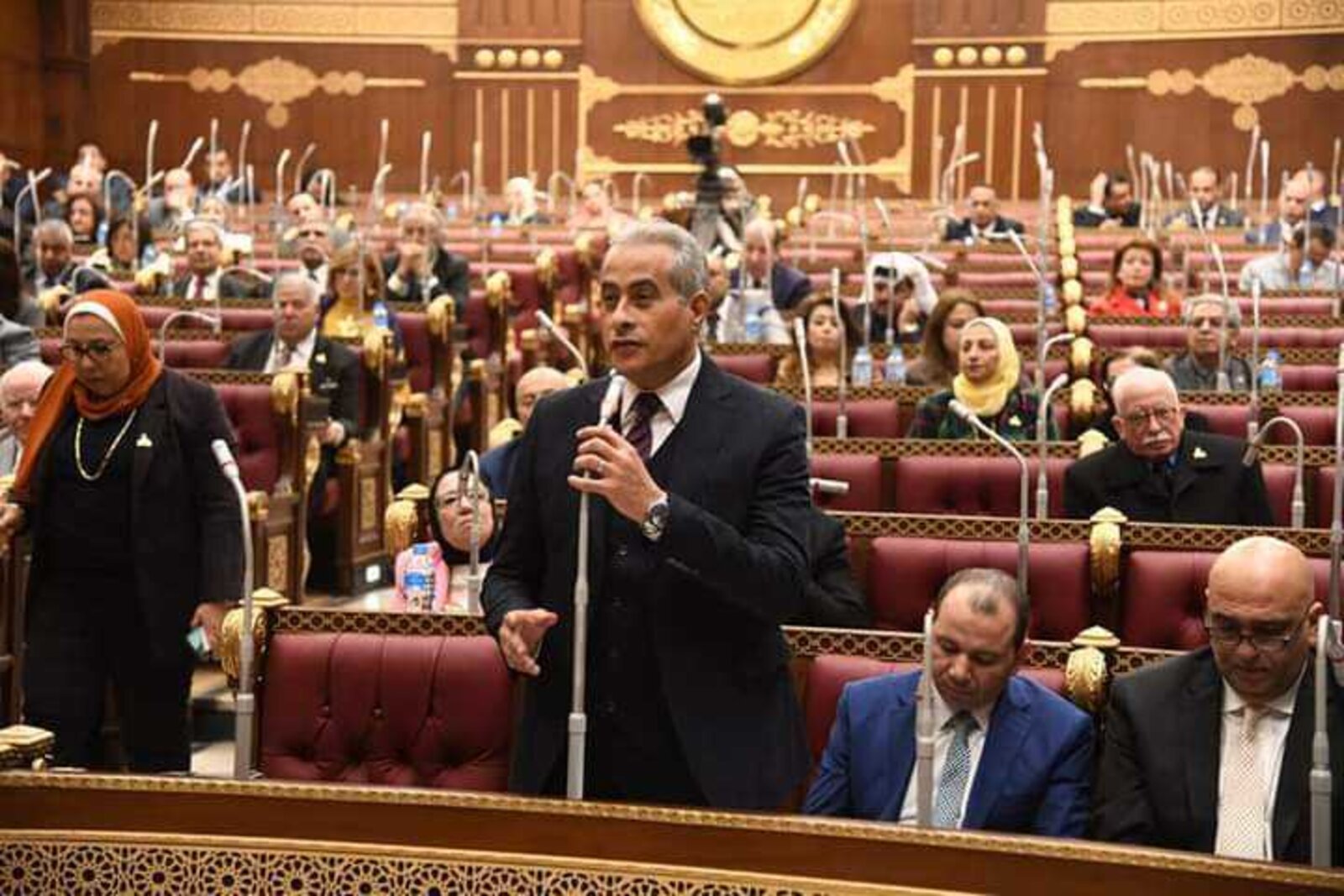
It was another econ-heavy day in the Senate and the House of Representatives yesterday: The Manpower Minister chimed in on a Senate debate about integrating the informal economy, while both MPs and senators cheered the budget cuts announced by Prime Minister Moustafa Madbouly earlier this week — and asked for the government to go further on austerity.
Domestic workers could soon need licenses in bid to formalize the industry: The Manpower Ministry is preparing a draft law that would bring domestic workers into the formal economy, Manpower Minister Hassan Shehata told the Senate yesterday, according to a ministry statement. Shehata said the draft bill would see those working for private households trained and licensed by the ministry, without giving any more details.
Part of the push to integrate informal workers: Shehata announced the draft bill during the second day of the Senate’s two-day debate on a study prepared by senator and business leader Ahmed Abu Hashima on integrating the informal economy. The minister called Abu Hashmia’s ideas “realistic and implementable.” He also highlighted ongoing government efforts to formalize sectors of the economy, including through the new draft labor law making its way through the House and a national employment strategy that the ministry is drafting.
AND- Legislators want gov’t budget cuts to go further + faster: Several MPs and senators welcomed the budget cuts and freezes on some state spending in hard currency announced earlier this week — but also said the move had come too late and urged the government to make further cutbacks and implement more fiscal discipline. Senator Mahmoud Sami, spokesperson for the Egyptian Socialist Democratic Party, called for “less spending on mega national projects which are of no priority and require significant FX allocations,” cuts to the salaries of high-paid government officials and consultants, and the postponement of expensive conferences like the World Youth Forum while global economic turmoil lasts.
The Senate has adjourned and will reconvene on Sunday, 22 January.
LAST NIGHT’S TALK SHOWS
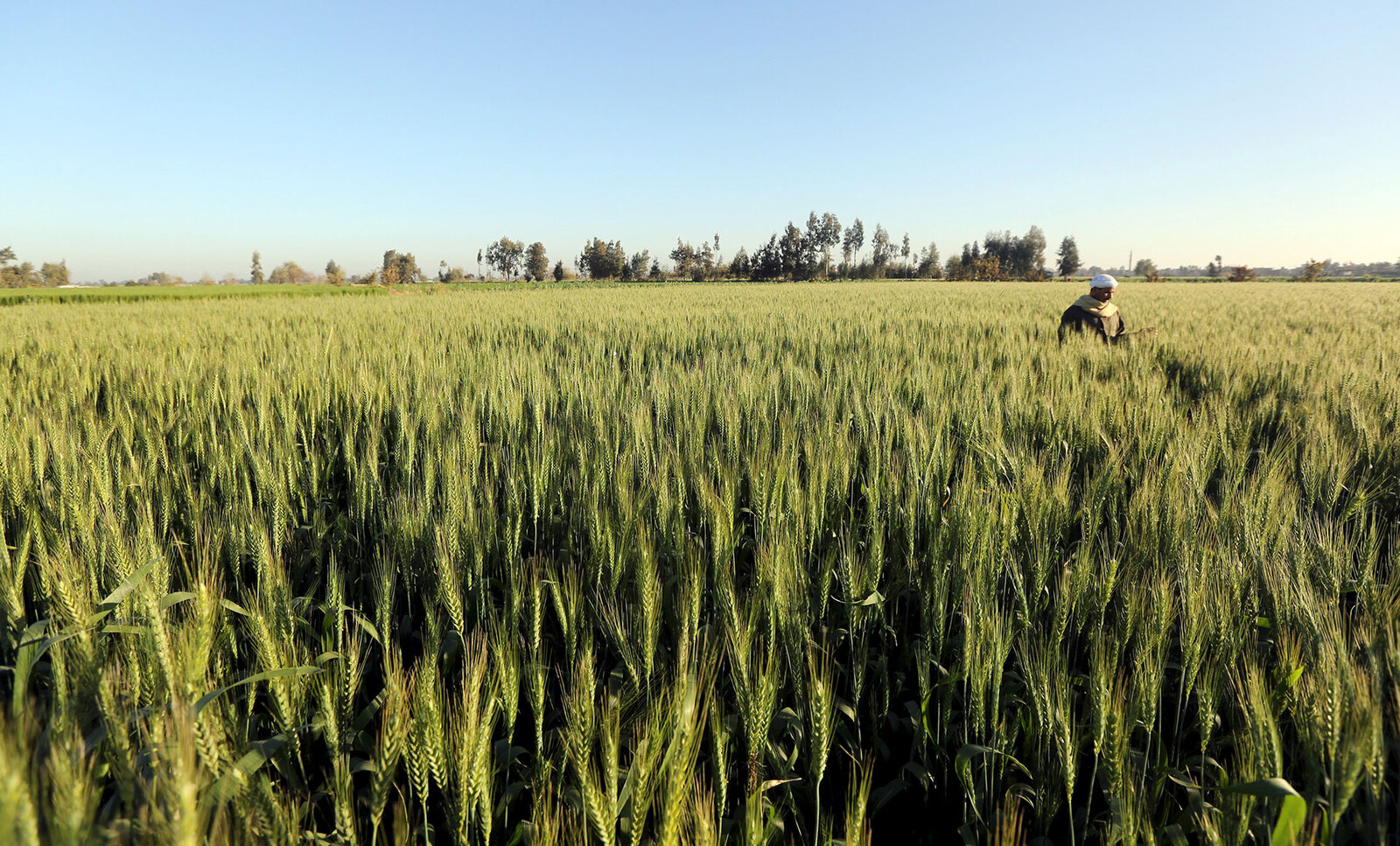
The pundits spent most of last night unpacking the information released by the IMF yesterday on our USD 3 bn facility (see the full story in our Economy section, above.) Elsewhere, the talking heads were talking about moves to maximize this year’s wheat harvest.
Will gov’t up its wheat purchase price? President Abdel Fattah El Sisi directed the government yesterday to set a local wheat purchase price that is profitable for farmers and would encourage them to up production, according to an Ittihadiya statement.
That will likely mean increasing the EGP 1k per ardeb price point that cabinet set last summer for the 2023 harvest season — which already represents a hike of nearly 15% from the EGP 865-885 per ardeb it paid last year, Agriculture Ministry Spokesperson Mohamed El Kersh told Kelma Akhira’s Lamees El Hadidi in a phone call (watch, runtime: 3:52). Agriculture Minister El Sayed El Quseir also discussed the news in a phone call with Ala Mas’ouleety’s Ahmed Moussa (watch, runtime: 21:31.)
ALSO ON OUR RADAR

ENERGY-
Oil Ministry projects are excluded from the government’s decision to ration FX spending, Minister Tarek El Molla told CNBC in an interview (watch, runtime: 10:08) The Oil Ministry’s partner companies tend to cover upfront investments in new oil and gas projects rather than the ministry itself, El Molla added. The Madbouly government directed on Monday that all but “essential” ministries make budget cutbacks until the end of the current fiscal year and limit spending on some national projects that require FX.
KarmSolar has secured EGP 83 mn in funding from our friends at HSBC to develop a solar grid in Farafra, the company’s second microgrid after the Marsa Alam Solar Grid, according to a statement (pdf). The solar energy player received debt financing for the first phase of the project from HSBC with Ezdahar’s support. Karmsolar is aiming to get the facility up and running by 3Q 2023, and have so far signed up Juhayna and Nawa for Agricultural Investment as offtakers.
SOCIETY-
US non-profit group Population Council will conduct a family planning study starting in February alongside Capmas and the Planning Ministry, the National reports. The study will poll 17k Egyptians on their opinions regarding a variety of population-related topics. Despite Egypt bringing down its fertility rate from 3.5 births per woman in 2014 to 2.8 in 2021, the population of the Arab world’s most populous country grew by 1.6 mn in 2022 and is expected to hit 160 mn by 2050. Egypt is one of eight countries projected to drive more than half of the projected increase in global population up to 2050, according to the UN.
TOURISM-
Marsa Alam Airport received its first charter flight from Milan’s Malpensa Airport yesterday, operated by Hungarian budget airline Wizz Air, according to a Tourism Ministry statement. Flights are scheduled to run twice weekly on the route.
TRADE-
The government will establish a new EGP 2.5 bn logistics and commercial zone in Beni Suef, according to Al Mal. Local media had previously reported that the General Authority for Land and Dry Ports is conducting a feasibility study to decide whether to establish a logistics area alongside the Beni Suef dry port.
PLANET FINANCE
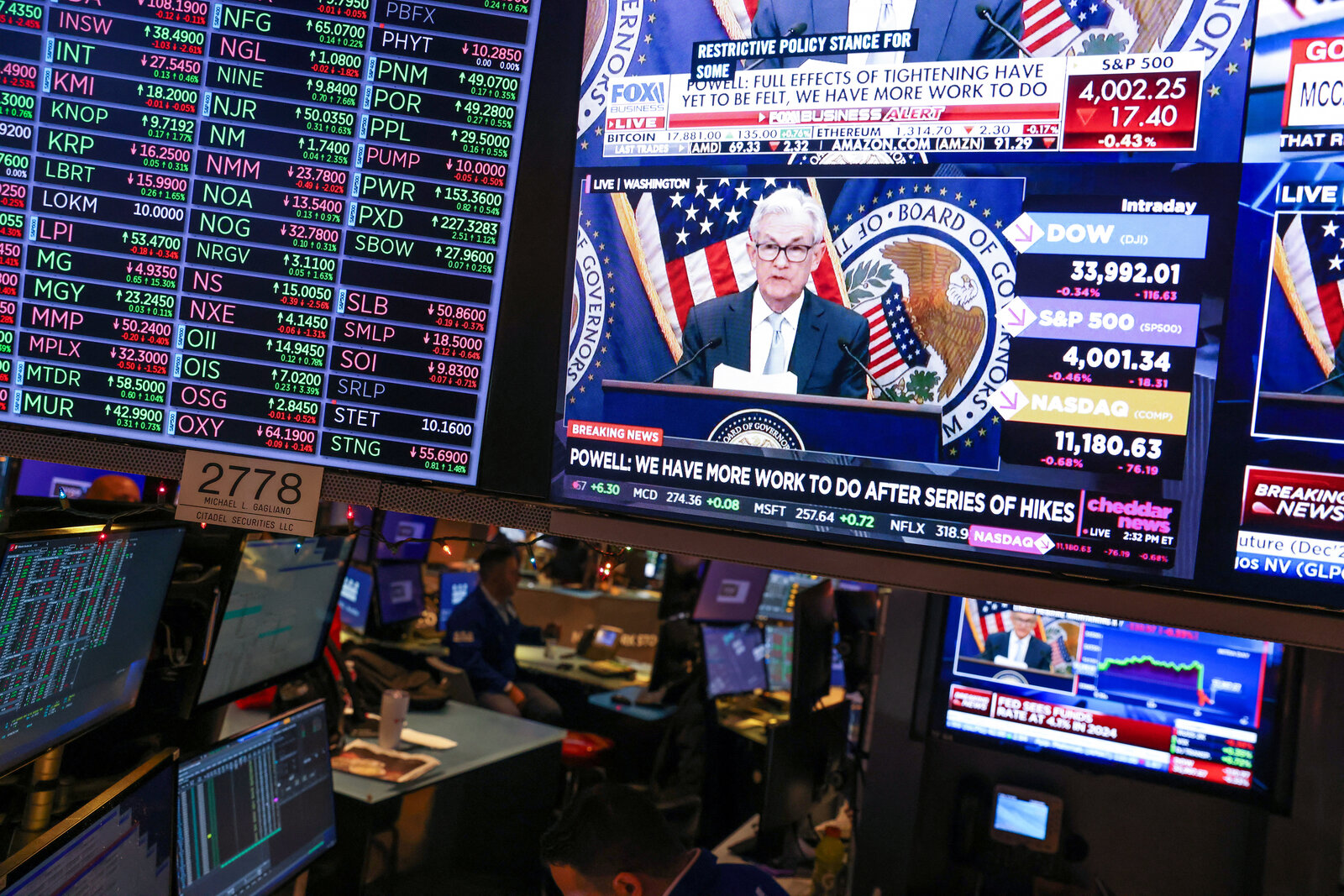
Don’t underestimate inflation — or how far the Fed will go to rein it in: That’s the message to markets from major asset managers including BlackRock Inc, Fidelity Investments and Carmignac, Bloomberg reports. Investors expecting inflation and rates to peak in 2023 may well be disappointed in the same way they were in 2022, when both debt and equities markets were blindsided by relentless price hikes, the analysts say. “Inflation is here to stay,” said Carmignac’s Frederic Leroux. “At some point the market will have to understand that more rate hikes are coming.”
The Fed is not about to hit reverse: “Central banks are unlikely to come to the rescue with rapid rate cuts in recessions they engineered to bring down inflation to policy targets,” BlackRock analysts said. US Federal Reserve officials have indicated that they won’t hesitate to continue upping rates in a bid to bring inflation back to their 2% target, though they could go for relatively smaller hikes of 25 basis points to mitigate the pain.
ALSO WORTH NOTING-
- The UAE’s Adnoc Distribution is among Bloomberg’s 50 picks for 2023. Bloomberg intelligence analysts said rising numbers of visitors to the UAE, as well as the service station operator’s expansion into Saudi Arabia and Egypt, is boosting profitability and growth.
- Bahrain-based Investcorp plans to invest USD 1 bn in Saudi Arabia’s real estate sector over the next five years in anticipation of a property boom. (Bloomberg)
- Saudi Arabia raised USD 10 bn in its first Eurobond issuance of the year, amid a wave of January optimism in the debt markets. (Bloomberg)
|
|
EGX30 |
15,463 |
-3.9% (YTD: +5.9%) |
|
|
USD (CBE) |
Buy 27.63 |
Sell 27.70 |
|
|
USD at CIB |
Buy 27.56 |
Sell 27.66 |
|
|
Interest rates CBE |
16.25% deposit |
17.25% lending |
|
|
Tadawul |
10,634 |
-0.1% (YTD: +1.5%) |
|
|
ADX |
10,210 |
+0.4% (YTD: -0.0%) |
|
|
DFM |
3,314 |
-0.3% (YTD: -0.7%) |
|
|
S&P 500 |
3,919 |
+0.7% (YTD: +2.1%) |
|
|
FTSE 100 |
7,694 |
-0.4% (YTD: +3.3%) |
|
|
Euro Stoxx 50 |
4,057 |
-0.3% (YTD: +7.0%) |
|
|
Brent crude |
USD 80.10 |
+0.6% |
|
|
Natural gas (Nymex) |
USD 3.58 |
-1.5% |
|
|
Gold |
USD 1,880.90 |
+0.2% |
|
|
BTC |
USD 17,434 |
+1.4% (YTD: +5.4%) |
THE CLOSING BELL-
The EGX30 fell 3.9% at yesterday’s close on turnover of EGP 2.4 bn (48.7% above the 90-day average). Local investors were net buyers. The index is up 5.9% YTD.
In the green: Heliopolis Housing (+2.4%), Housing and Development Bank (+0.5%).
In the red: Palm Hills Development (-6.6%), EFG Hermes (-6.4%) and CIB (-6.2%).

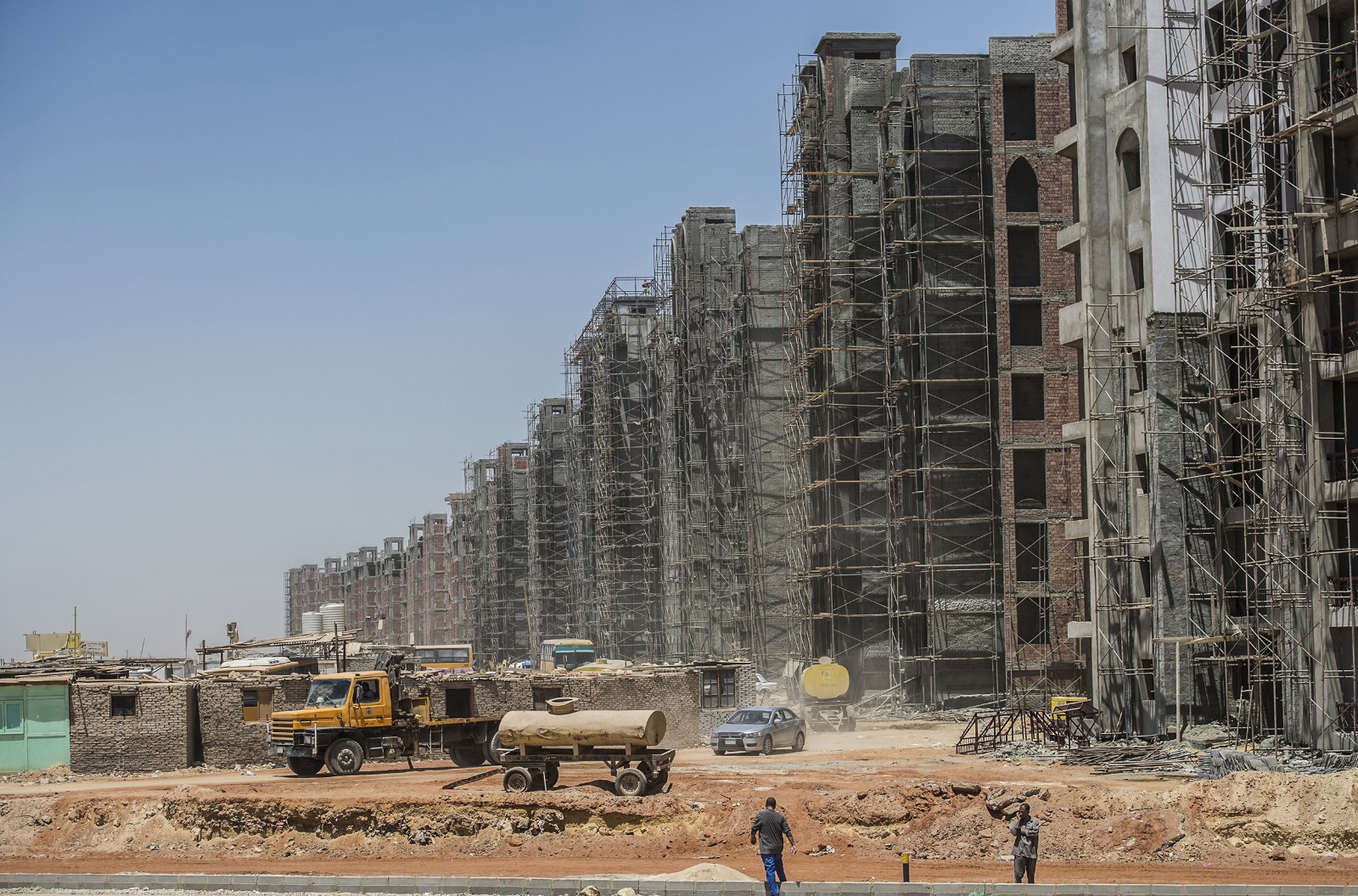
Will new rules for designating contracting companies help stymie the industry's losses? Last year, the government issued amendments (pdf) to the regulations governing how companies in the contracting and construction industries are legally classified. These amendments, which came at the request of the Egyptian Federation of Construction and Building Contractors, are designed to provide some level of protection to contracting and construction firms reeling from cost pressures and a weaker EGP. Now, the federation has begun replacing firms’ licenses to reflect these changes, with some 26k companies expected to see a change in how they are classified, industry sources we spoke with told us.
What are these new rules? For decades, members of the Federation of Construction and Building Contractors have been placed into tiers that, among other things, determine the maximum value of projects these companies can bid on in tenders. The new decision changes some of the criteria that determine the companies’ tier classification, which in turn allows them to bid on higher value projects. The tier assessment is based on nine core principles:
- Paid-in capital;
- Industry experience;
- Size of technical staff;
- Size of financial staff;
- Value of the largest completed contract in the past five years;
- Value of all completed contracts in the past five years;
- The most recently approved budget;
- Proof of financial solvency from a bank;
- Inventory of owned technical equipment.
Companies now have one fewer requirement to be moved into a higher tier: Previously, the regulations that govern the federation required companies to raise their paid-in capital by some 50% to qualify for a higher tier classification. The changes waive this requirement due to the current macroeconomic climate, which has brought headwinds for the sector, federation head Mohamed Sami Saad told Enterprise. Now, moving to a higher tier is determined by the value of the contracts they have completed successfully in the past five years.
And firms can increase their working portfolio value to help them ramp up revenues: The changes increase the upper limit on the value of new projects companies are allowed to bid on by some 80% in a bid to help alleviate the pressures on the sector. Tier two companies, for example, were previously allowed to bid for projects worth EGP 100 mn, but will now be able to compete for projects worth EGP 180 mn without any additional costs to contractors, Saad says. The decision, which takes into account the liquidity crisis in the sector is expected to usher in a boon for contractors by granting a larger pool of companies access to new projects, Saad added.
Chalk it up to inflation: An increase in building material costs, inflation, and the EGP devaluation are behind these changes, Saad told Enterprise. Because input costs have increased, companies that previously qualified for, say, a fifth tier classification are likely to have taken on more expensive projects in the past year — but may have faced difficulties in qualifying to a higher tier due to the capital increase requirements. At the heart of this decision is a desire to protect contractors against late fees and to offer them room to expand their businesses, Saad explained.
The construction sector is rife with project delays and late payments: Contractors have for a while now been requesting extensions on contracted work for national projects and asking for payments for their work to be expedited, Saad tells us.
Liquidity is also a major problem that the new rules aim to address: FX shortages and liquidity challenges are two of the most significant components of the problem, according to Saad and federation Secretary General Hisham Ahmed Yousri. “We thought that by changing classification rules and raising limits on values contractors are allowed to work with, it would absorb a large part of the current crisis and provide more opportunities,” Yousri said.
Some EGP 40 bn worth of compensation could be on its way to contractors: The decision to revisit how contracting companies are classified and the issuance of the contractors’ compensation bill have been great signals on the government’s part to support the sector, Saad told us.
Limited financing options will be a huge concern for contractors heading into 2023: Compared to the widely anticipated rising cost of raw materials, land prices and slowing consumer demand, declining financing options for new construction is an unsung problem for the sector that is expected to be a major sticking point in 2023.
But the new decision to re-classify companies could pave the way for SMEs to grab a piece of the pie, President of Al-Bustani Group for Real Estate Development Mohamed El Bustani tells us. Re-classifying these companies could become a catalyst for greater competition in the sector, especially among medium-sized companies, and give them new room to grow, according to Daker Abdellah, a board member at the Egyptian Federation of Construction and Building Contractors.
And for some it’s already been a lifeline: The Housing Ministry decision has saved a number of small companies from closing their doors, El Bustani tells us. Increasing the volume of business these companies are allowed to take on offers a lifeline to these businesses by allowing them to enter contracting agreements for larger projects and government tenders, he adds.
Your top infrastructure stories for the week:
- Italy has reportedly submitted a proposal to the Egyptian Electricity Transmission Company to work on a joint USD 2.8 bn electricity interconnection project between the two countries.
- It’s shaping up to be another year of supply chain bottlenecks as port workers all over the world protest unfair wages.
CALENDAR
JANUARY
January: EGX-listed companies and non-bank lenders will submit ESG reports for the first time.
January: Fuel pricing committee meets to decide quarterly fuel prices.
January: Infinity + Africa Finance Corporation to close acquisition of Lekela Power.
January: Global Auto to restart BMW assembly in Egypt.
16-20 January (Monday-Friday): Davos 2023.
24 January-6 February: Cairo International Book Fair, Egypt International Exhibition Center.
25 January (Wednesday): 25 January revolution anniversary / Police Day.
26 January (Thursday): President El Sisi will visit India as “chief guest” at celebrations to mark the 74th anniversary of Indian independence.
26 January (Thursday): National holiday in observance of 25 January revolution anniversary / Police Day (TBC).
30 January-1 February (Monday-Wednesday): CI Capital’s Annual MENA Investor Conference 2023, Cairo, Egypt.
FEBRUARY
2 February (Thursday): Central Bank of Egypt’s Monetary Policy Committee meeting.
11 February (Saturday): Second semester of 2022-2023 academic year begins for public universities.
13-15 February (Monday-Wednesday): The Egypt Petroleum Show (Egyps), Egypt International Exhibition Center, Cairo.
23-27 February (Thursday-Monday): Annual Business Women of Egypt’s Women for Success conference.
MARCH
March: 4Q2022 earnings season.
23 March (Wednesday): First day of Ramadan (TBC). Maghreb will be at 6:08pm CLT.
30 March (Thursday): Central Bank of Egypt’s Monetary Policy Committee meeting.
APRIL
1 April (Saturday): Deadline for banks to establish sustainability units.
10-16 April (Monday-Sunday): IMF / World Bank Spring Meetings, Marrakesh, Morocco.
16 April (Sunday): Coptic Easter
17 April (Monday): Sham El Nessim.
22 April (Saturday): Eid El Fitr (TBC).
25 April (Tuesday): Sinai Liberation Day.
27 April (Thursday): National holiday in observance of Sinai Liberation Day (TBC).
30 April (Sunday): Deadline for self-employed to register for e-invoicing.
30 April (Sunday): End of Mediterranean, Nile Delta oil + gas exploration tender.
Late April – 15 May: 1Q2023 earnings season.
MAY
1 May (Monday): Labor Day.
4 May (Thursday): National holiday in observance of Labor Day (TBC).
4 May (Thursday): IEF-IGU Ministerial Gas Forum, Cairo.
18 May (Thursday): Central Bank of Egypt’s Monetary Policy Committee meeting.
22-26 May (Monday-Friday): Egypt will host the African Development Bank (AfDB) annual meetings in Sharm El Sheikh.
JUNE
10 June (Saturday): Thanaweya Amma examinations begin.
19-21 June (Monday-Wednesday): Egypt Infrastructure and Water Expo debuts at the Egypt International Exhibition Center.
22 June (Thursday): Central Bank of Egypt’s Monetary Policy Committee meeting.
28 June-2 July (Wednesday-Sunday): Eid El Adha (TBC).
30 June (Friday): June 30 Revolution Day.
JULY
18 July (Tuesday): Islamic New Year.
20 July (Thursday): National holiday in observance of Islamic New Year (TBC).
23 July (Sunday): Revolution Day.
27 July (Thursday): National holiday in observance of Revolution Day.
Late July-14 August: 2Q2023 earnings season.
AUGUST
3 August (Thursday): Central Bank of Egypt’s Monetary Policy Committee meeting.
SEPTEMBER
21 September (Thursday): Central Bank of Egypt’s Monetary Policy Committee meeting.
26 September (Tuesday): Prophet Muhammad’s birthday (TBC).
28 September (Thursday): National holiday in observance of Prophet Muhammad’s birthday (TBC).
OCTOBER
6 October (Friday): Armed Forces Day.
Late October-14 November: 3Q2023 earnings season.
NOVEMBER
2 November (Thursday): Central Bank of Egypt’s Monetary Policy Committee meeting.
DECEMBER
21 December (Thursday): Central Bank of Egypt’s Monetary Policy Committee meeting.
EVENTS WITH NO SET DATE
2023: The inauguration of the Grand Egyptian Museum.
2023: Egypt will host the Asian Infrastructure Investment Bank’s Annual Meeting of the Board of Governors in 2023.
1Q 2023: Adnoc Distribution’s acquisition of 50% of TotalEnergies Egypt to close.
1Q 2023: Egypt + Qatar to launch joint business forum.
1Q 2023: FRA to introduce new rules for short selling.
1Q 2023: Internal trade database to launch.
Enterprise is a daily publication of Enterprise Ventures LLC, an Egyptian limited liability company (commercial register 83594), and a subsidiary of Inktank Communications. Summaries are intended for guidance only and are provided on an as-is basis; kindly refer to the source article in its original language prior to undertaking any action. Neither Enterprise Ventures nor its staff assume any responsibility or liability for the accuracy of the information contained in this publication, whether in the form of summaries or analysis. © 2022 Enterprise Ventures LLC.
Enterprise is available without charge thanks to the generous support of HSBC Egypt (tax ID: 204-901-715), the leading corporate and retail lender in Egypt; EFG Hermes (tax ID: 200-178-385), the leading financial services corporation in frontier emerging markets; SODIC (tax ID: 212-168-002), a leading Egyptian real estate developer; SomaBay (tax ID: 204-903-300), our Red Sea holiday partner; Infinity (tax ID: 474-939-359), the ultimate way to power cities, industries, and homes directly from nature right here in Egypt; CIRA (tax ID: 200-069-608), the leading providers of K-12 and higher level education in Egypt; Orascom Construction (tax ID: 229-988-806), the leading construction and engineering company building infrastructure in Egypt and abroad; Moharram & Partners (tax ID: 616-112-459), the leading public policy and government affairs partner; Palm Hills Developments (tax ID: 432-737-014), a leading developer of commercial and residential properties; Mashreq (tax ID: 204-898-862), the MENA region’s leading homegrown personal and digital bank; Industrial Development Group (IDG) (tax ID:266-965-253), the leading builder of industrial parks in Egypt; Hassan Allam Properties (tax ID: 553-096-567), one of Egypt’s most prominent and leading builders; and Saleh, Barsoum & Abdel Aziz (tax ID: 220-002-827), the leading audit, tax and accounting firm in Egypt.

